By Bashir Muhammad Akinyele, Guest Contributor
Photo credits: Weequahic High School/Newark Board of Education
“Emancipate yourself from metal slavery, none but ourselves can free our minds.” -Bob Marley
On Friday, February 19, 2021, Weequahic High school in Newark, NJ commemorated Black History Month with the raising of the Black Liberation Flag. This will be the nineteenth year the school and community have organized the ceremony. It is an effort to recognize the importance of Black history and Black History Month.
The Black Liberation flag was created by the Universal Negro Improvement Association and African Communities League (UNIA-ACL) on August 13, 1920 during its month-long convention at Madison Square Garden in New York City. Its purpose was to symbolize Black empowerment.
The UNIA-ACL was founded by the Honorable Marcus Mosiah Garvey. He was a Blackman from Jamaica.
The flag was established in 1920 by members of UNIA in response to a racist song that became a hit around 1900 called, “Every Race Has a Flag but the Coon.” This song has been cited as one of the three songs that “firmly established the term coon in the American vocabulary.”
According to the UNIA, the three colors on the Black Nationalist flag represent:
• red: the blood that unites all people of Black African ancestry.
• black: Black people; and
• green: Mother Afrika.
The flag later became a Black nationalist symbol for the worldwide liberation of Black people. As an emblem of Black pride, the flag became popular during the Black Liberation movement of the 1960s and early 1970s. In 1971, the school board of Newark, New Jersey, passed a resolution permitting the flag to be raised in public school classrooms.
The first school district to do so in America.
Therefore, many people within the Afrikan / Afrikan American community honor Black History Month with the raising of the Black Liberation Flag. Black history was established to give us Black pride, a sense of purpose, and a rescued history distorted by white supremacy.
February was designated by the late Africana Studies Professor Dr. Carter G. Woodson as Black History Month. However, in 1926 he began it as Negro History Week. But in the 1960s, Black Power college students renamed Negro History Week to Black History Month.
Presently, many people believe that Black History must be studied every month. However, out of respect for the pioneering work of Dr. Woodson to teach Black people, and the world, our history; we dedicate extra time during February to discuss and analyze the contributions people of Afrikan descent made to America and the world’s civilizations.
Before his death in 1950, Dr. Carter G. Woodson was an outstanding history professor. He founded ASNLH (Association for the Study of Negro Life and History) to help with resources and materials to reestablished the history of Black people . It had branches all over the country.
In closing, please study Black history!!! Use all cell phones and technology to find our history in the world!!!! But most importantly, read books on Afrikan / Afrikan American history and culture. Our history is more than just Hip Hop, rap music, elected officials, slavery, and colonialism! The missing pages to world and American history is Black history. Raising the Black liberation flag continues to bring needed attention to the necessity of Black history and Black History Month.
Happy Black History Month!
Hotep (An Afrikan Kemetic Egyptian Word for Peace)!
Note: Spelling Afrika with a k is not a typo. Using the k in Afrika is the Kiswahili way of writing Africa. Kiswahili is a Pan -Afrikan language. It is spoken in many countries in Africa. Kiswahili is the language used in Kwanzaa. The holiday of Kwanzaa is celebrated from December 26 to January 1.
Bashir Muhammad Akinyele is a History and Africana Studies teacher at Weequahic High School in Newark, NJ. He is also the co-coordinator for ASCAC’s (the Association for Study of Classical African Civilizations) Study Group Chapter in Newark, NJ. (https://ascac.org/)

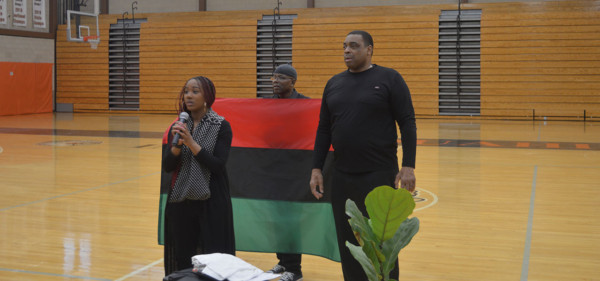



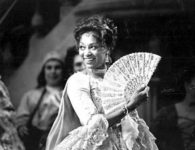
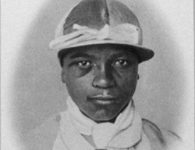
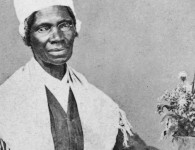


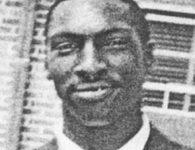


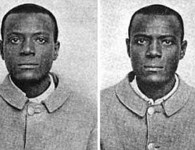
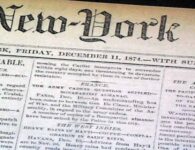

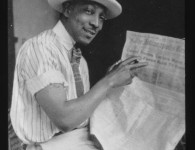



1 Comment
Every flag has a pledge, and the Liberation Flag, is no different. The name of the pledge for OUR flag is: Here’s to this flag of mine. Marcus Garvey, was one of the most prolific leaders of the 20th century. He was a man, WAY AHEAD OF HIS TIME. If we had followed his lead, we as a race of people, would be much further ahead. The Philosophies and Opinions of Marcus Garvey, Volume 1 and 2 are good resources. Additionally, Black Power and the Garvey Movement, by Theodore Vincent, is another EXCELLENT source.